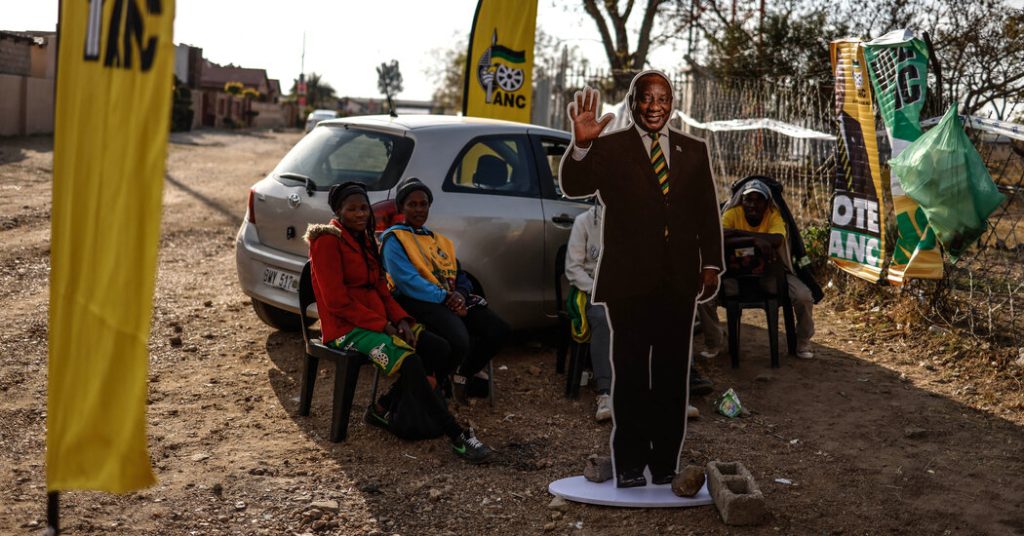The Mathivha family in northern Johannesburg celebrated as the African National Congress (ANC) lost its majority in the recent national election, dropping from nearly 58 percent in the previous election to about 40 percent. The Mathivhas broke with tradition and did not vote for the ANC, citing corruption and arrogance as reasons. They are part of the largest cohort of registered voters in South Africa, with younger voters growing disillusioned with the ANC’s failure to deliver on promises since the end of apartheid.
Born after apartheid, the Mathivhas are part of a generation that has witnessed the ups and downs of post-apartheid South Africa, including economic growth followed by decline. They live in Gauteng Province, where urban Black voters are particularly frustrated with the ANC’s lack of basic services. Budgeting for private school for their son due to dissatisfaction with public schools, the Mathivhas also face challenges such as rolling blackouts and rising crime rates that have affected their daily lives.
The Mathivhas voted for the Patriotic Alliance, a party focused on being tough on crime, after their home was robbed in 2020. They were impressed by party leader Gayton McKenzie’s initiatives to bring jobs and improve infrastructure in a rural district in Western Cape province where poverty was prevalent. Despite the Patriotic Alliance’s gains, the Mathivhas were dismayed that their home province, the Eastern Cape, continued to support the ANC due to lingering fears of racism and apartheid.
While Mr. Mathivha voted for the Democratic Alliance, the second-largest party, in a down-ballot race, he acknowledged that he may have supported the ANC if it had addressed key issues such as infrastructure, policing, and education effectively. However, concerns about coalition governments and parties like the Economic Freedom Fighters, led by Julius Malema, who advocates nationalizing the central bank, have left the Mathivhas feeling uncertain about the future political landscape in South Africa.
The Mathivhas are cautious about the potential instability of coalition governments following the election, especially with parties like the Economic Freedom Fighters seeking key roles in the Finance Ministry. Despite their optimism at the ANC’s reduced majority, they remain skeptical of Malema’s party’s intentions. They are also wary of the success of newcomers like the uMkhonto we Sizwe (M.K.) party, led by former ANC president Jacob Zuma, which has gained ground among the Black middle class. The Mathivhas hope that breakaway parties like the M.K. party will not overshadow the need for genuine change and progress in South Africa.


